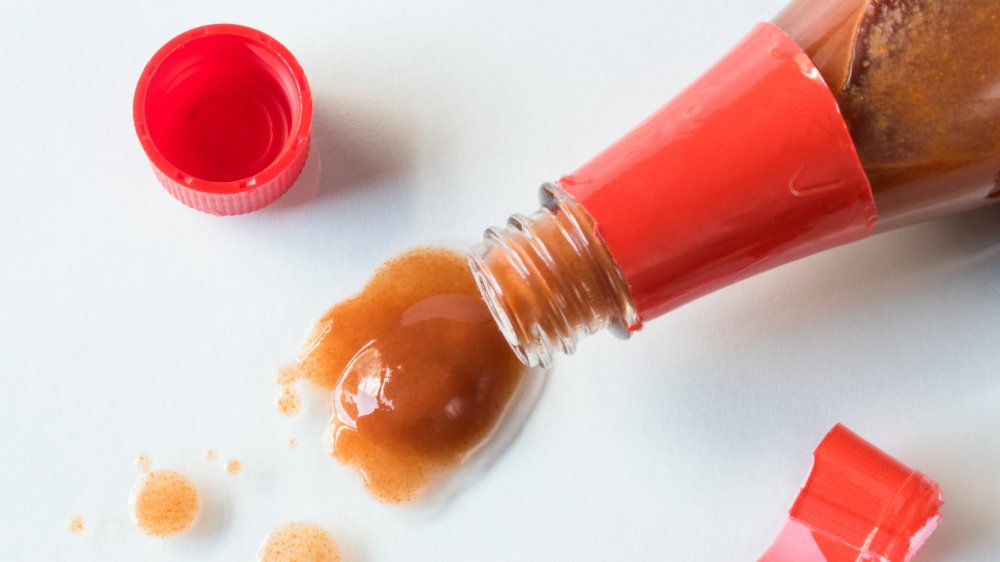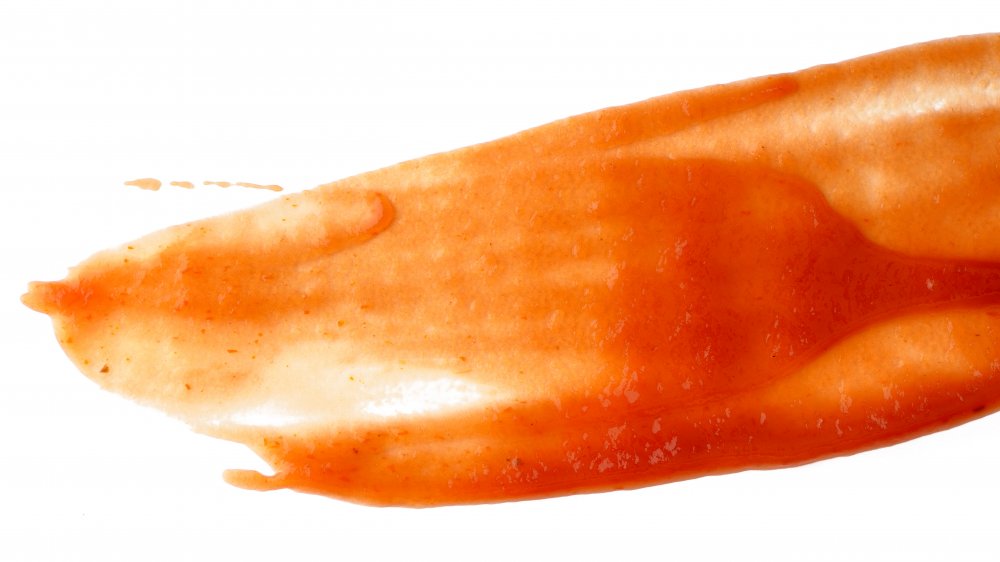You've Been Storing Hot Sauce Wrong Your Entire Life
If you like a little bit — or a lot — of heat added to your food, there's a good chance a section of real estate in your refrigerator is occupied by hot sauce. There's a secret, though, that might cause your fridge to be hot sauce-free in the future, and it's not because your taste buds have changed.
Hot sauce companies know this uncommon wisdom, and many restaurants do, too. The secret is that most hot sauces never need to be refrigerated. Many of us remember a time when a steaming hot taco session became lukewarm because of refrigerated hot sauce, but we can now say goodbye to those potentially imperfect meals. For the sake of us all, let's lay down the facts (via Extra Crispy).
Unlike many other bottled sauces, hot sauce typically has three main components, all of which provide antibacterial properties and lend for them to stay fresh out of the fridge.
Hot sauce can be stored in or out of the fridge
Vinegar and salt are a mainstay in almost all commercially produced heat elevators, along with capsaicin, which is the chemical that makes your tongue tingle, and these ingredients are all unfriendly towards tiny intruders. Lastly, lots of companies actually expect their product to be stored at room temperature, so they add preservatives to help keep their flavor safe and intact (via Pepper Scale).
There's one small catch, though. Refrigerated hot sauce can last up to four times as long compared to a product stored at room temperature. But pantry-stored hot sauce still lasts about six months on average, and most heat seekers will go through a bottle faster than that. The only other catch is that while unrefrigerated hot sauce will still be good for months, it might oxidize faster than a chilled bottle would, which means a vibrant red sauce could shift in color a little bit. So if presentation is important to you, it might make more sense to keep the hot stuff in the cold.

